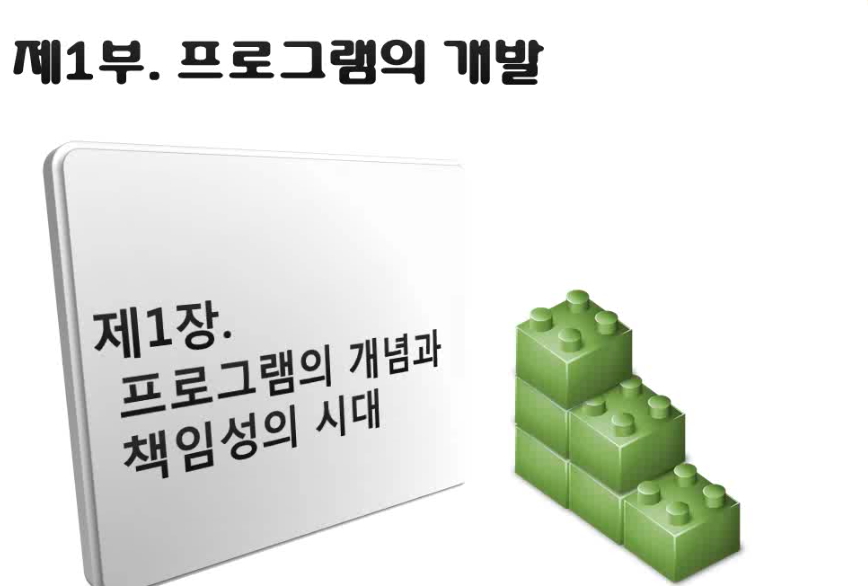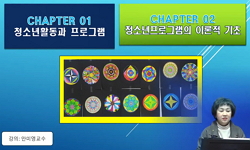Objectives:The purpose of this study is to evaluate the preliminary effects of school-based short term mental health awareness and school bullying prevention programs. Methods:From April to December 2013, the Child and Adolescent Mental Health ...
http://chineseinput.net/에서 pinyin(병음)방식으로 중국어를 변환할 수 있습니다.
변환된 중국어를 복사하여 사용하시면 됩니다.
- 中文 을 입력하시려면 zhongwen을 입력하시고 space를누르시면됩니다.
- 北京 을 입력하시려면 beijing을 입력하시고 space를 누르시면 됩니다.
https://www.riss.kr/link?id=A100469663
- 저자
- 발행기관
- 학술지명
- 권호사항
-
발행연도
2014
-
작성언어
Korean
- 주제어
-
KDC
516
-
등재정보
KCI등재,SCOPUS,ESCI
-
자료형태
학술저널
-
수록면
196-202(7쪽)
-
KCI 피인용횟수
6
- 제공처
-
0
상세조회 -
0
다운로드
부가정보
다국어 초록 (Multilingual Abstract)
Objectives:The purpose of this study is to evaluate the preliminary effects of school-based short term mental health awareness and school bullying prevention programs.
Methods:From April to December 2013, the Child and Adolescent Mental Health Promotion team of Seoul National Hospital conducted school-based short term social skill training (N=56, 4 sessions), mental health awareness (N=84, 4 sessions) and school bullying prevention programs (N=171, 1 session) in elementary and junior high schools located in Seoul. The changes in the subjects before and after the program were assessed.
Results:The a social skills training program improved the ‘helping’ behaviors in boys (t=-2.355, p<.05) and ‘sharing’ (t=-3.223, p<.01), ‘cooperation’ (t=-2.235, p<.05), and ‘comforting’ (t=-2.830, p<.01) behaviors in girls, assessed using the Prosocial Behavior Questionnaire. The mental health awareness program improved ‘general health awareness’ (t=2.620, p<.05), measured using the Korean General Health Questionnaire. The school bullying prevention program resulted in decreased ‘self esteem’ (t=3.769, p<.01), measured using the Self Esteem Scale and decreased ‘anger’ (t=4.198, p<.01), assessed using the Novaco Anger Scale.
Conclusion:The results of our preliminary analysis suggest that school-based mental health awareness and school bullying prevention programs may be effective even when conducted for a short term. Future investigation is necessary in order to validate the long term effects of these programs.
참고문헌 (Reference)
1 Novaco RW, "Violence and Mental Disorder: Developments in Risk Assessment" University of Chicago Press 21-59, 1994
2 Shin SI., "The validity and reliability of the Korean version of the general health questionnaire: KGHQ-20 & KGHQ-30" 46 : 210-235, 2001
3 Jung JH., "The study of the effectiveness analysis of school based school violence prevention programs" Hanyang Univ 2009
4 Kang JH., "The relation between children’s emotion regulation, aggression and school adjustment as a function of child sex" Ewha Womans Univ 2003
5 Min BK, "The impact of marital relationship, conjugal dynamics and family violence on juvenile delinquency" 36 : 878-895, 1997
6 Hong HJ., "The effects of the school violence prevention program on the anger-control of middle school boys" Changwon National Univ 2009
7 Sung JE., "The effects of the school violence prevention program on school violence attitudes, anger and school adjustment resilience in middle school students" Chonnam National Un 2013
8 Lee HJ., "The effects of prosocial behavior training on prosocial moral reasoning, social responsibility, and prosocial behavior motivation with reference to children’s age and gender" 11 : 189-221, 1997
9 Kang YH., "The effects of emotional intelligence strenghening program on emotional ability and peer relationship of primary school students" Hongik Univ 2008
10 Im J., "The effects of an empathy-based group training program on the prosocial behavior of elementary school children" Seoul National Univ. of Education 2005
1 Novaco RW, "Violence and Mental Disorder: Developments in Risk Assessment" University of Chicago Press 21-59, 1994
2 Shin SI., "The validity and reliability of the Korean version of the general health questionnaire: KGHQ-20 & KGHQ-30" 46 : 210-235, 2001
3 Jung JH., "The study of the effectiveness analysis of school based school violence prevention programs" Hanyang Univ 2009
4 Kang JH., "The relation between children’s emotion regulation, aggression and school adjustment as a function of child sex" Ewha Womans Univ 2003
5 Min BK, "The impact of marital relationship, conjugal dynamics and family violence on juvenile delinquency" 36 : 878-895, 1997
6 Hong HJ., "The effects of the school violence prevention program on the anger-control of middle school boys" Changwon National Univ 2009
7 Sung JE., "The effects of the school violence prevention program on school violence attitudes, anger and school adjustment resilience in middle school students" Chonnam National Un 2013
8 Lee HJ., "The effects of prosocial behavior training on prosocial moral reasoning, social responsibility, and prosocial behavior motivation with reference to children’s age and gender" 11 : 189-221, 1997
9 Kang YH., "The effects of emotional intelligence strenghening program on emotional ability and peer relationship of primary school students" Hongik Univ 2008
10 Im J., "The effects of an empathy-based group training program on the prosocial behavior of elementary school children" Seoul National Univ. of Education 2005
11 Shin HS., "The effects of a group counseling program for human relations training on prosocial behavior in elementary school children" Pusan National Univ 1995
12 Lee SM., "The effect of personal, family, friend and school variable on prosocial behaviors among adolescents" Dong-A Univ 2007
13 Choi KM., "The effect of a pro-sociality enhancement group counseling program for elementary school students on their pro-social behaviors and group cohesion" Korea National Univ. of Education 2007
14 Kim SY., "The effect of a emotion regulation program on aggression of elementary school students with aggression problems" Kyungpook National Univ 2008
15 Goldberg DP., "The detection of psychiatric illness by questionnaire;a technique for the identification and assessment of non-psychotic psychiatric illness" Oxford Univ. Press 1972
16 Jang JW., "The causal relationship of maternal factors, peer factors and empathy on children’s prosocial behavior" Pusan National Univ 2005
17 Eagly AH, "The Developmental Social Psychology of Gender" Lawrence Erlbaum Associates 123-174, 2000
18 Rosenberg M., "Society and adolescent self-image" Princeton University Press 1965
19 Oh YL, "Social skill training" Hana Medical Publisher 2002
20 Jeon BJ., "Self-esteem: a test of its measurability" 11 : 107-129, 1974
21 Graham S, "Self-blame and peer victimization in middle school: an attributional analysis" 34 : 587-599, 1998
22 Kim KH., "Rising mental power" Hakjisa 1998
23 Cho YJ., "Moderating variables on the transition to bullies of witnesses or victims of bullying (wang-ta in Korean)" Sookmyung Women’s Univ 2005
24 Kim YK., "International comparative study of policy and legislation on school violence" Kyung Hee Univ 2013
25 Goleman D., "Emotional intelligence: why it can matter more than IQ" Bantam 1995
26 Lee HM., "Effects of the emotion regulation competence enhancement program on elementary school students’ aggression and peer relations" Chonnam National Univ 2013
27 Namgung HS., "Effects of anger control program" Yonsei Univ 1997
28 Egan SK, "Does low self-regard invite victimization?" 34 : 299-309, 1998
29 Kim HS., "Discriminative factor analysis of delinquent behavior in Korea" 37 : 483-492, 1998
30 Kim CK, "Child group counseling program" Hakjisa 2004
31 Kaltiala-Heino R, "Bullying, depression, and suicidal ideation in Finnish adolescents:school survey" 319 : 348-351, 1999
32 Olweus D., "Bullying at school: basic facts and effects of a school based intervention program" 35 : 1171-1190, 1994
33 Kim TW., "A study on self-esteem, problem behavior, and altruistic behavior of junior high school students and senior high school students" Yonsei Univ 2006
34 Lee JK, "A study on anxiety, depression, repression and coping strategy of deliquent adolescents" 37 : 493-500, 1998
35 Strøm IF, "A prospective study of the potential moderating role of social support in preventing marginalization among individuals exposed to bullying and abuse in junior high school" 43 : 1642-1657, 2014
36 Kee BS, "A discriminant function analysis of problem behaviors among adolescent delinquents and students in Korea" 12 : 499-517, 1987
37 Song DH, "A case-analysis of the psychiatric sequelae in adolescents victimized by school violence" 8 : 232-241, 1997
동일학술지(권/호) 다른 논문
-
고기능 자폐스펙트럼장애에서 제한된 관심과 반복적인 행동 유무에 따른 임상 양상의 차이
- 대한소아청소년정신의학회
- 이수민(Sumin Lee)
- 2014
- KCI등재,SCOPUS,ESCI
-
- 대한소아청소년정신의학회
- 정연경(Yeon-Kyung Jung)
- 2014
- KCI등재,SCOPUS,ESCI
-
성인 알코올사용장애 환자에서 주의력결핍 과잉행동 증상 유무에 따른 임상적 및 신경심리학적 특성
- 대한소아청소년정신의학회
- 조정민(Jung Min Jo)
- 2014
- KCI등재,SCOPUS,ESCI
-
성폭력 외상이 소아청소년의 정신병리와 삶의 질에 미치는 영향
- 대한소아청소년정신의학회
- 김혜영(Hye-Young Kim)
- 2014
- KCI등재,SCOPUS,ESCI
분석정보
인용정보 인용지수 설명보기
학술지 이력
| 연월일 | 이력구분 | 이력상세 | 등재구분 |
|---|---|---|---|
| 2022 | 평가예정 | 재인증평가 신청대상 (재인증) | |
| 2019-01-01 | 평가 | 등재학술지 유지 (계속평가) |  |
| 2016-01-01 | 평가 | 등재학술지 유지 (계속평가) |  |
| 2012-01-01 | 평가 | 등재 1차 FAIL (등재유지) |  |
| 2009-01-01 | 평가 | 등재학술지 선정 (등재후보2차) |  |
| 2008-01-01 | 평가 | 등재후보 1차 PASS (등재후보1차) |  |
| 2006-01-01 | 평가 | 등재후보학술지 선정 (신규평가) |  |
학술지 인용정보
| 기준연도 | WOS-KCI 통합IF(2년) | KCIF(2년) | KCIF(3년) |
|---|---|---|---|
| 2016 | 0.63 | 0.63 | 0.68 |
| KCIF(4년) | KCIF(5년) | 중심성지수(3년) | 즉시성지수 |
| 0.69 | 0.71 | 1.282 | 0.04 |






 ScienceON
ScienceON DBpia
DBpia






